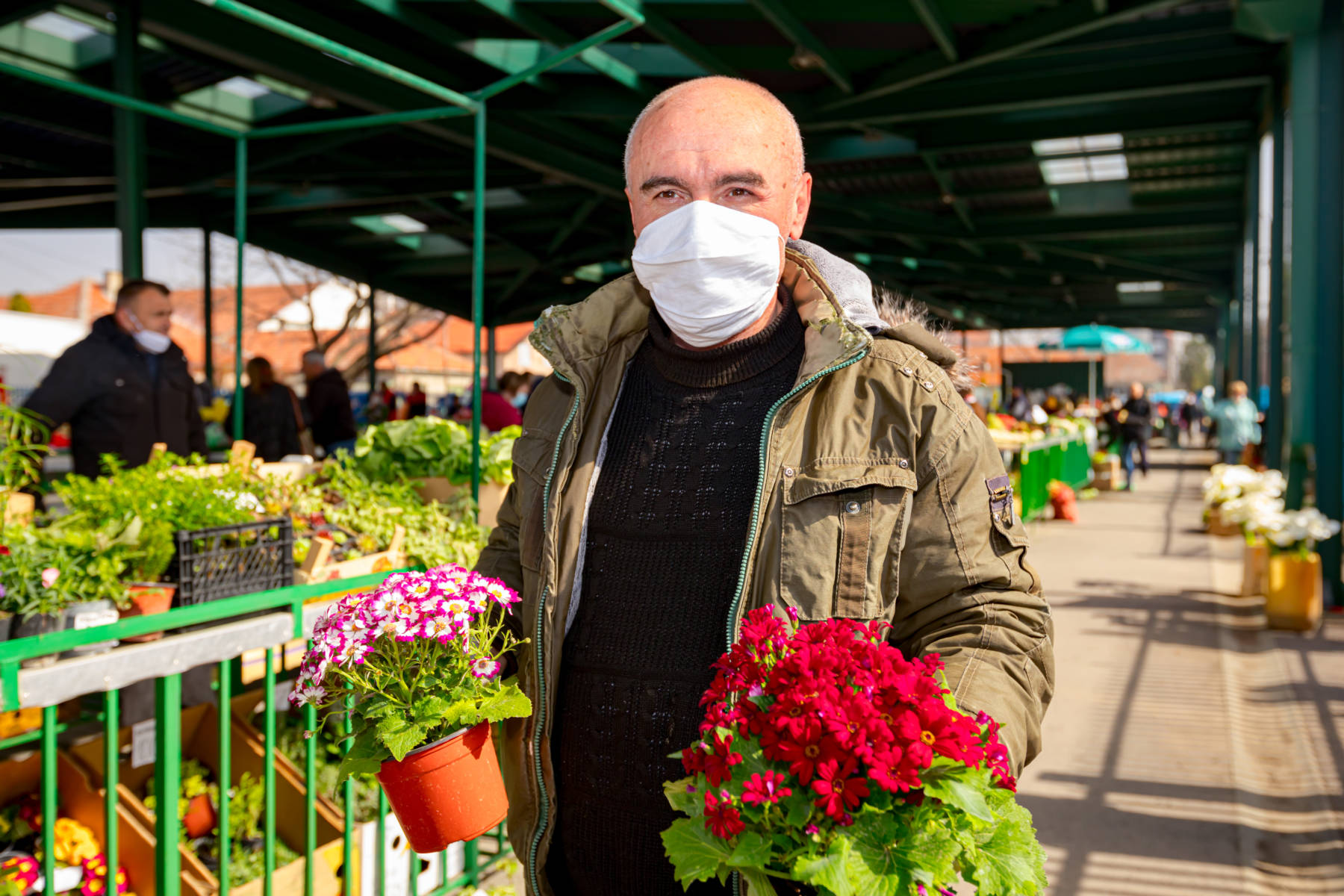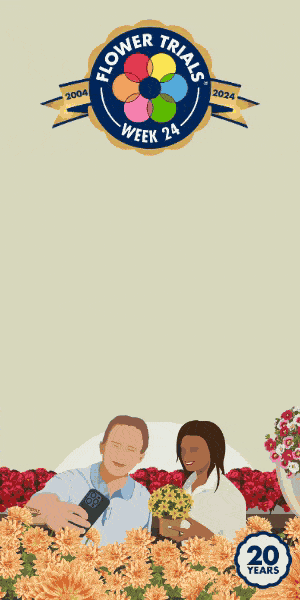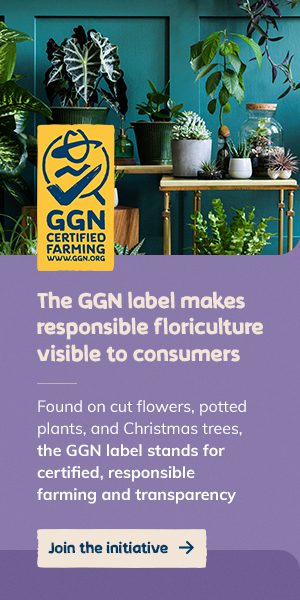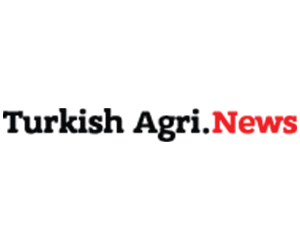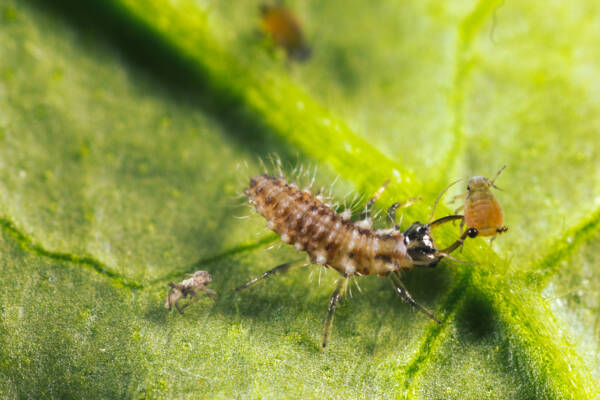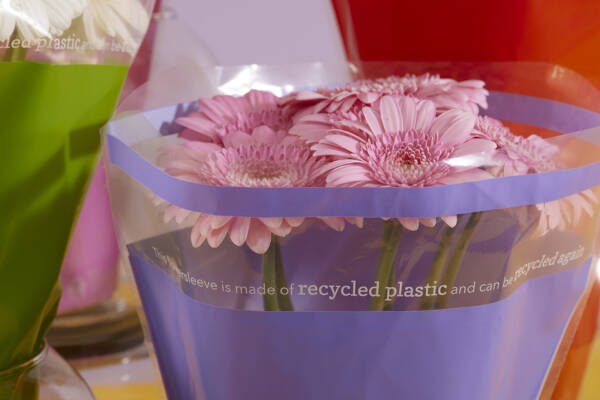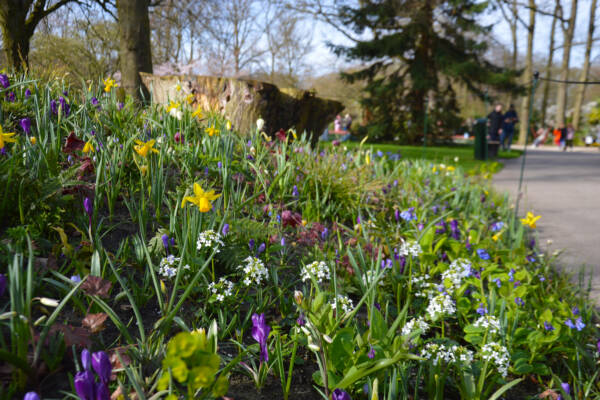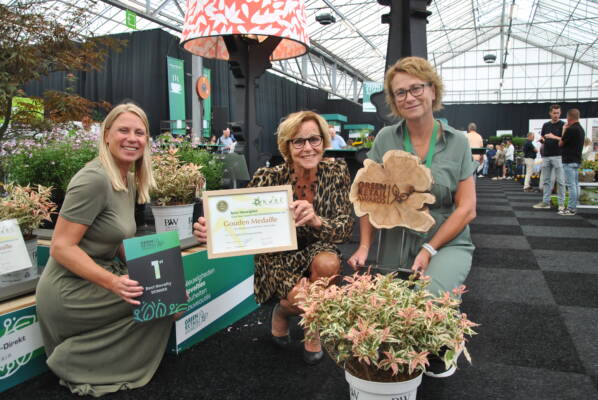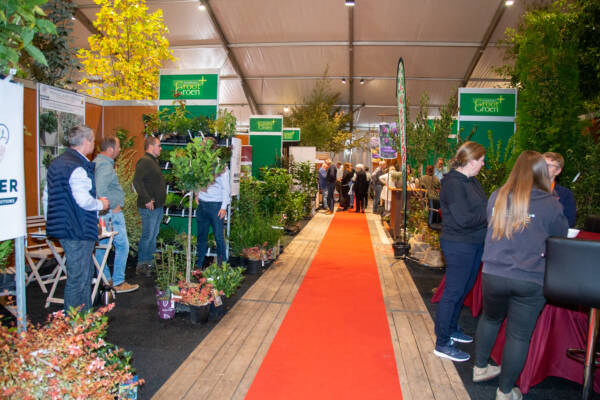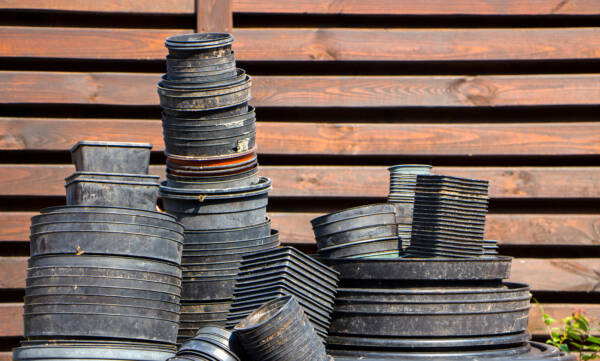THE HAGUE, Netherlands, BERLIN, Germany: In a rare televised address, Dutch Prime Minister Mark Rutte announced a strict lockdown from 15 December 2020 to 19 January 2021. Germany’s lockdown is similarly strict but is one week shorter. Flower shops and garden centres are among the businesses which must close.
“The coronavirus is spreading even faster than we calculated last week. And that is why the Netherlands will go into lockdown for a period of at least five weeks,” Rutte told the nation on Monday evening 14 December. As he spoke from his office in The Hague, a handful of protesters could be heard banging on pots, pans, and blowing whistles. Leaving his prepared speech adequately, Rutte reacted to the noise outside, “And the reality is also that we are not dealing with a harmless flu, which some – say the protesters out here – still think, but with a virus that can hit anyone hard. And not only the very oldest among us.”
Contrary to the country’s ‘intelligent lockdown’ 9 months ago, this time around the Prime Minister ordered all non-essential businesses as well as schools to close until 19 January 2021. Specifying the most drastic decisions he said, “All unnecessary shops will close from tomorrow morning. Only the shops for basic necessities will remain open. These are the supermarkets, the bakeries, the butchers and other food stores, including the weekly markets. They also include the drugstores, dry cleaners, opticians and home care stores. But otherwise, all clothing boutiques, hardware stores, department stores, furniture stores, garden centres, electronics stores, household goods stores and whatever else you can think of must close their doors.”
While stressing that life ‘will return to normal, with very little or no restrictions’, Rutte asked the population to be patient. “We will not be back to normal immediately. Nor in a week or a month. But with the vaccine, 2021 will be a year of hope and a light at the end of the tunnel.” Interestingly, he urgently advised to not undertake any unnecessary trips abroad until mid-March, even if the Dutch government previously stated vaccination will begin on 4 January 2021.
Just the first wave of coronavirus cases in spring, the Dutch government has prepared different forms of financial aid. Under the so-called NOW scheme, companies can apply for a subsidy again with which they can continue to pay their staff. Rutte added that his government will also continue to look during the coming period to see what can and is necessary to ensure that as few companies as possible fail.
Germany has a similar strict lockdown, though it is one week shorter. It will commence on Wednesday 16 December 2020 to last until at least 10 January 2021. Also in Germany, all essential shops and schools will shut. Outlets selling Christmas trees can continue trading, but the government has ordered all garden centres and flower shops to close. Quintessentially German are the country’s Weihnachtsmarkten, Christmas markets, which are prohibited also.
The German E-Commerce and Distance Selling Trade Association (bevh) asks the German government to retail outlets delivery, pick up and drive through services. Christoph Wenk-Fischer, Chief Executive of bevh told the country leading horticultural media outlet Taspo, “All those who are willing and able must be able to supply their customers also on Sundays and public holidays in these extraordinary times be it by providing, issuing or delivering goods.”
The German sector body, Verband des Deutschen Blumen- Gross- und Importhandels e.V., also known as the BGI, told Taspo that the flow of goods must be maintained. “Just like during the lockdown 1 in spring, floral wholesale companies will adjust and adapt to adequately supply their customers and maintain the flow of goods. We know that florists who were forced to close, or decided to do so in spring, often set up a delivery service for their customers and temporarily transformed their business into a workshop. Online sales offers opportunities for shops with good customer loyalty, especially for the upcoming holidays, to generate sales despite the shutdown. Wholesalers know how committed florists are and they are getting ready for smaller orders at shorter intervals. Dealing with the situation responsibly is important for the entire industry, so that an improvement in the infection situation gives us the opportunity for a successful Valentine’s business and a good start to the spring season.”
Commenting on the new lockdown 2 measures for the Netherlands and Germany, spokesman Michel van Schie of Royal FloraHolland said this time his country is facing a full-fledged hard lockdown. “However, the market is not going to be shut down completely with street food markets and, most probably also flower stalls being allowed to stay open. What is more, the new restrictions in the Netherlands will still allow delivery, pick up and drive through services.”
Regarding the situation in Germany, the single-largest export market for Dutch flowers and plants (in 2019 representing an export value of €1.67bn with 26,7% of all Dutch flowers and plants going to this market), Van Schie finds it harder to make any predictions. “All signals point to a nationwide lockdown, though it not yet fully clear to which extent each of the 15 Bundeslander may prescribe different rules.”
Looking at how the market performed on 14 December, Van Schie told FCI that pressure on prices for cut flowers and potted plants is building with levels of unsold products slightly up compared to last year. To date, the auction has not implemented its temporary quota system as it did in March and April. “Also because supply regulations are draconian measures which in light of the Competition Act are only permitted in exceptional situations. We implemented them in March and April to be phased out the following month. Only in the run up to All Saints’ and All Souls’ Day they re-established for gerbera, potted chrysanthemum, and potted roses, but for the last two products they remained only one day in place.”
Van Schie anticipated ongoing pressure on prices due to cancelling of direct trade which is frequently modelling on long-term supply contracts for the delivery of tailor-made retail orders. “This will undoubtedly lead to increased product flows brought in for sale through the auction clock.”
Comparing the lockdown 2 with the Netherlands’ first confinement Van Schie said the sector shows much more digital readiness. “All buyers have now switched to the KOA remote buying systems, while online buying in the retail environment is full steam ahead. All this doesn’t mean that we fully understand the frustration among florists over being forced to shut while supermarkets can keep their floral departments open.”
Flower giant DFG understands that action is required to prevent any further increase in coronavirus cases in the Netherlands. “However, it is no secret that the hard lockdown will affect flower and plant supplies and a large portion of our customers. Now that Germany and the Netherlands have gone into strict lockdown, other countries such as the UK may follow. Again, the ability to adjust to the new lockdown measures are the most important skill that we and all our partners within the value chain have,” said the company’s spokesman Marcel Zandvliet.
Asked about the uneasy situation in which supermarkets continue sell flowers and plants whereas garden centres and flower shops close, Zandvliet said, “These decisions are politically driven and as Dutch Flower Group we cannot influence them. All we can do is follow the guidelines of the local authorities. We do our utmost to deliver flowers, bouquets and plants to our customers, that is, to those who have been allowed to do so,” says Zandvliet who added that contrary to the first global wave of Covid-19, this time around lockdowns seem more regional with measures differing from country to country.























